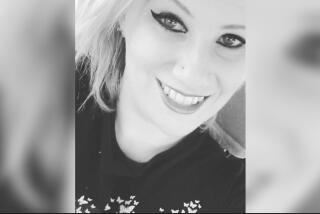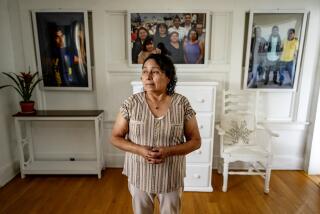SANTA ANA : Lawyers Urge Jurors to Spare Client’s Life
- Share via
Lawyers for Mario Tirado, who faces the death penalty for the 1987 murders of two teen-agers in a gang-related shooting, asked jurors Tuesday to consider his youth and the impact on his family when passing sentence.
Tirado, 21, would be the youngest person sent to Death Row from Orange County since the state reinstated capital punishment 12 years ago.
He was 18 when he was arrested for the Oct. 30, 1987, shooting deaths of Enrique Arceo, 13, and Jesus Perez, 17, who were cycling home from a church carnival when Tirado opened fire from a car. Tirado was convicted of the murders in February.
Tirado’s lawyers brought in psychiatrists and psychologists in an attempt to show jurors that he had been vulnerable to pressure to get involved in street gangs because of problems at home. They also brought in character witnesses, including many family members and friends from Mexico who knew him before he left there early in his teens.
“What do they say? That the boy who left Mexico could not have done this,” said defense attorney Otha Standifer III during closing arguments Tuesday. Pointing to his client, he asked: “Is he someone you have to kill?”
Jurors have to decide between death or life in prison without parole. While Superior Court Judge Everett W. Dickey could overrule the jury in the event of a death sentence, no Orange County judge has do so under the state’s latest death penalty law.
Co-counsel Chris Jensen, who also made a closing argument, said, “Mario Tirado is not a vicious monster who deserves to die; people who love him would be devastated.”
Defense attorneys used Tirado’s jailhouse poetry to show what they said was his growth in religion and morality. In one poem, “A Prayer of God’s Trooper,” Tirado wrote: “Heavenly Father, Look at my homeboys. It wasn’t so long ago they were playing with toys. But now they find pleasure in weapons and guns. My God, I am tired of this violence, and of the shootings.”
But Deputy Dist. Atty. Charles J. Middleton argued that most of Tirado’s jailhouse prayers are for himself. Tirado, the prosecutor said, has not shown the remorse or religious commitment his lawyers have argued to the jury.
“That night, did he get down on his knees and pray he wouldn’t hit one of these victims?” Middleton said.
Middledon asked the jurors to consider the seriousness of the offense.
“The only morally appropriate penalty is death,” Middleton argued.
Jurors are to begin deliberations today.
More to Read
Sign up for Essential California
The most important California stories and recommendations in your inbox every morning.
You may occasionally receive promotional content from the Los Angeles Times.













